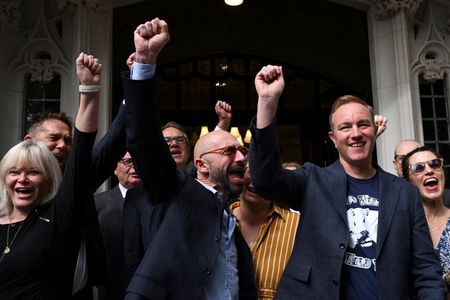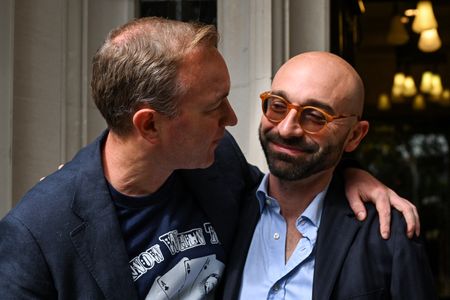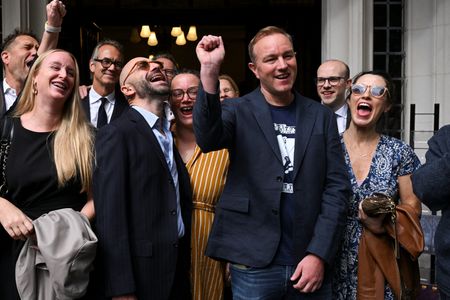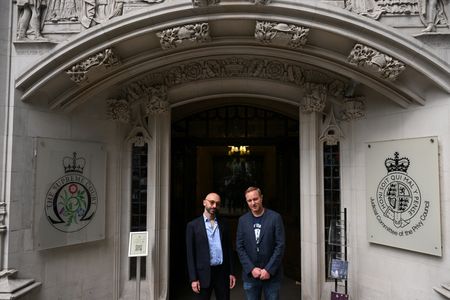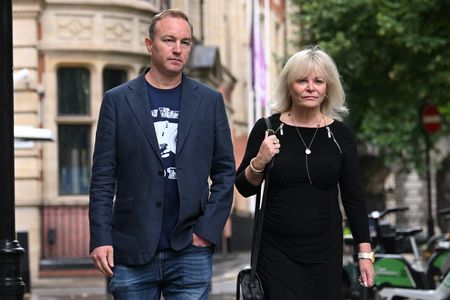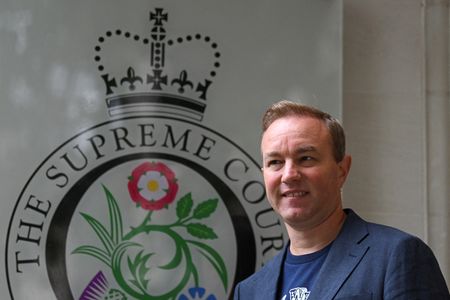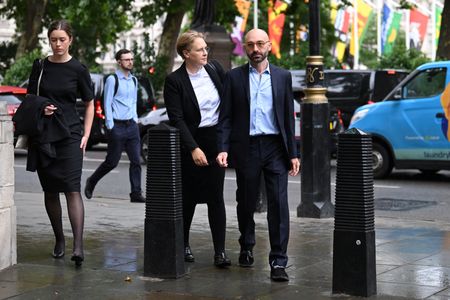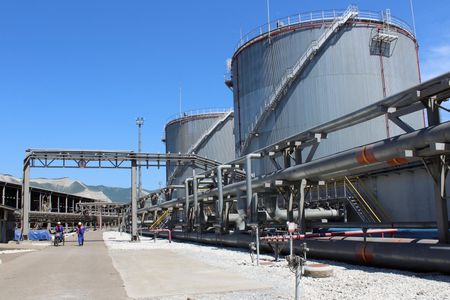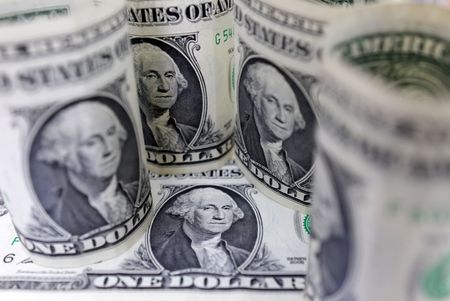By Sam Tabahriti
LONDON (Reuters) -Tom Hayes, the first trader ever jailed for interest rate rigging, had his conviction overturned by Britain’s top court on Wednesday after a years-long fight to clear his name.
The UK Supreme Court unanimously allowed Hayes’ appeal, quashing his 2015 conviction of eight counts of conspiracy to defraud by manipulating Libor, a now-defunct benchmark interest rate.
“I always believed that it would happen,” Hayes, a former Citigroup and UBS star trader, told a press conference. “This wasn’t a gamble for me.”
The court said there had been “ample evidence” for a jury to reasonably conclude Hayes had conspired with others to manipulate submissions used to compile the Libor rate – much of it coming from Hayes’ own interviews with Britain’s Serious Fraud Office, which brought the charges against him.
The SFO claimed that Hayes conspired with others to dishonestly manipulate the process for setting Libor – an estimate of the interest rate that banks could borrow from one another used to underpin trillions of dollars of contracts.
However, the jury ten years ago was misdirected by the judge, who incorrectly said it was not allowed to consider commercial interests in the submissions, the Supreme Court said, and that “undermined the fairness of the trial”.
Hayes had argued that his conviction hinged on a definition of Libor that assumed there was a legal bar on a bank’s commercial interests being taken into account when setting it.
Hayes was deprived of the opportunity to have his claims fairly considered “by directions which were legally inaccurate and unfair,” the Supreme said, adding that his convictions were “therefore unsafe and cannot stand”.
Hayes had initially received a 14-year prison sentence, later reduced to 11 years on appeal. He served five and a half years before being released on licence in 2021.
Hayes became the face of the global Libor scandal and challenged his conviction at the Supreme Court along with Carlo Palombo, 46, a former Barclays trader who was found guilty in 2019 of skewing Libor’s euro equivalent, Euribor.
The court also quashed Palombo’s conviction. He was given a four-year sentence in 2019.
The SFO said that after considering the judgment it would not be in the public interest for it to seek a retrial.
RIPPLE EFFECT
Libor, once a key benchmark for global finance, underpinned around $400 trillion in contracts, from mortgages to student loans.
Managed by the former British Bankers’ Association, it was based on daily estimates from a panel of banks on how much they expected to pay to borrow from each other. The rate was phased out in 2023.
The Libor scandal led to more than $9 billion in fines for banks and brokers worldwide, including the convictions of 19 traders in Britain and the United States.
Hayes challenged his conviction following a landmark U.S. court decision in 2022 that overturned the Libor rigging convictions.
Caroline Greenwell, a partner at law firm Charles Russell Speechlys, said the judgment would now bring Britain in line with the United States.
“This result not only clears Mr Hayes’ and Mr Palombo’s names, but could also lead to convictions secured in nine other criminal trials prosecuted by the Serious Fraud Office… being reviewed,” she said.
The SFO brought charges against 20 individuals between 2013 and 2019, securing convictions against nine – seven at trial and two through guilty pleas – while 11 were acquitted.
(Reporting by Sam Tabahriti. Editing by Sarah Young and Mark Potter)

